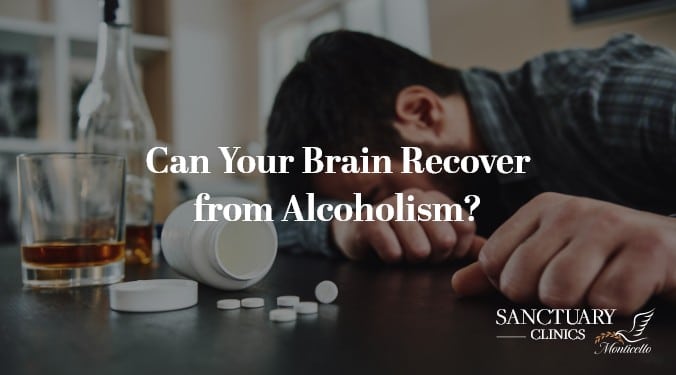Alcohol is one of the socially acceptable substances/drugs which can be ingested by people past a certain age. Alcohol is consumed primarily for its pleasurable effects like euphoria and a perceived increase in confidence. However, when taken in excessive amounts, alcohol ceases to be a pleasure inducing substance and becomes a burden, eventually becoming toxic even to the body of the consumer. Excessive alcohol consumption has been linked to cognitive decline, liver, kidney, and heart diseases, among other effects. For this article, we shall focus on the cognitive effects of alcohol, specifically how alcohol affects/changes the brain and whether these changes are reversible or not.
According to statistics, one in four people (25%) admitted to binge drinking (more than the recommended daily usage per sitting) in the past month alone, and a total of 85% admitted to having drank alcohol in their lifetime. Similarly, adolescents who were habitual drinkers were found to be at a higher risk for permanent damage and long-lasting performance deficits because they are in a period where the most impacted areas of the brain are still under development. Because of this, alcohol is a very addictive substance and people who have used it for an extended period experience changes in their brain chemistry and physiology, some which can be reversed and others which are irreversible.
Alcohol and the brain
During normal functioning, your brain secretes a variety of neurotransmitters to maintain a state of equilibrium and to make sure there is a balance. A balanced state means you aren’t on either one extreme; either over-stimulated or under-stimulated/overly suppressed.
Alcohol is a suppressant so its action in the brain imitates the inhibitory neurotransmitters like gamma aminobutyric acid (GABA). GABA is mainly secreted to balance the effects of stimulants in your brain, so your body is not in an overly excitatory state. Both alcohol and GABA help in calming you down, slowing down activity in your brain and inducing a state of relaxation in your brain. Because of these similarities, when alcohol is constantly consumed and your body adapts to its presence, GABA is produced in smaller quantities to maintain this equilibrium.
In the immediate to short-term, when you consume alcohol, it blocks chemical signals between neurons leading to the common symptoms of intoxication like slowed reflexes, poor memory, slurred speech, impulsive behavior, and light-headedness.
When you are a regular consumer of alcohol, your body adapts to the presence of alcohol in your system and alcohol plays the role of an inhibitor or a suppressant for you. As a result, your hormones or neurotransmitters which would be producing the suppressants or relaxing your body produce much smaller quantities because your body must maintain a delicate balance. This leads to the state of dependence where your body needs alcohol to maintain homeostasis or normal functioning. When alcohol isn’t consumed at this stage, the brain has an imbalance of neurotransmitters. This leads to stimulating hormones being in excess compared to relaxing hormones, with side-effects like sweating, anxiety, agitation, irritability, etc. This process of reaction to the changes in your body’s response to alcohol is called neurotoxicity, caused by neurons overreacting to neurotransmitters for a long time.
Consumption of alcohol has been said to accelerate the natural chronological aging of your brain (your brain having symptoms like those which are typical/expected in a person who is much older). This is shown in studies in which going from one drink of alcohol per day to two drinks per day caused changes in the brain equivalent to aging two years.
Effects of alcohol on your brain
The effects alcohol can have on a your brain are dependent on a number of factors which are different for each person. Such factors include the amount of alcohol consumed, the frequency of consumption, the duration within which you have been consuming alcohol, age, genes, history of alcoholism in the family of origin, gender, etc.
On top of these physical factors are the medical factors like your health and nutrition, neurological factors like head injuries, and psychiatric factors like depression and anxiety.
- Wernicke-Korsakoff Syndrome (WKS) – This is a brain disorder caused by a thiamine (vitamin B1) deficiency. It is characterized with symptoms like extreme confusion, amnesia, and sight issues. Thiamine is an essential vitamin which your brain uses to convert food into energy. WKS occurs in two stages: Wernicke encephalopathy where there is a severe and acute brain disorder, and Korsakoff syndrome which is a long-term memory disorder. When the first stage of Wernicke encephalopathy is left untreated, it can cause lasting brain and nerve cell damage leading to you experiencing severe memory loss and the inability to form new memories. Emergency interventions with thiamine treatment are essential to relieve some of the symptoms and mitigate the severity of the effects on your brain.
- Atrophy of the cerebral cortex and white matter, basal forebrain regions – Studies have been done which show long-term use of alcohol leading to atrophy in the regions of the brain responsible for short-term and long-term memory, balance, and emotions. This atrophy occurs when you have a reduced volume of both grey matter (cell bodies) and white matter (cell pathways) over time. This atrophy was observed in the hypothalamus and the amount of shrinkage was proportional to the amount of alcohol consumed over a period of time. The hypothalamus plays a major role in memory and learning. Atrophy of the brain is reversible. It has been discovered in as little as two weeks of abstinence the regeneration of lost grey matter volume can begin.
- Brain damage – Alcohol can also damage your nerve endings in neurons, making it difficult for your neurons to communicate effectively (in terms of sending and receiving important nerve signals). Due to this breakdown in effective communication to your brain, you develop cognitive impairment and are left prone to accidents which can cause permanent damage like broken bones or even loss of life. This also exposes you to an increased likelihood of suffering from seizures and strokes which also cause irreparable damage.
- Mental health – On top of affecting your brain, alcohol also affects your mind. The first effect of alcoholism on your mind is the state of dependence which leads to addiction. Addiction is the state where you are no longer in control of your behavior, especially around alcohol. It manifests in various ways like craving alcohol when sober, drinking alcohol at inappropriate times, wasting resources on the pursuit of alcohol, an inability to maintain close and professional relationships due to destructive behavior when drunk, an inability to fulfill obligations both at work and in your personal life, extreme withdrawal symptoms when you try to abstain from alcohol, among others. Alcoholism is a compulsive behavior which holds the drinker captive but can be reversed. For an alcohol addict to overcome their addiction successfully, they may need to be in an intensive program where they are being monitored by medical health professionals and mental health experts. This helps in the treatment of severe alcohol withdrawal like delirium tremens (DTs) which can even be fatal when the process of recovery is undertaken in a non-medical setting. The effects of addiction withdrawal like cold sweats, irritability, anxiety, and cravings disappear within a year of recovery and don’t leave permanent changes, so your brain can recover from your addiction.
Recovery
Although some nuances exist in alcohol consumption of individuals, research has shown after one year of continuous abstinence (without relapsing) from alcohol, cognitive function of recovering alcoholics was greatly restored, with changes also being noticed in their attention and working memory. A key factor to this recovery was continued abstinence for a period of one year or more, which increased the likelihood of regeneration of dead cells and recovery. Some changes to the brain like those found in people with WKS may be irreversible. A person may not fully recover from them, but they can be alleviated.
Sources
https://pubs.niaaa.nih.gov/publications/aa63/aa63.htm
https://pubs.niaaa.nih.gov/publications/arh27-2/125-133.htm
https://americanaddictioncenters.org/alcoholism-treatment/mental-effects
https://www.nm.org/healthbeat/healthy-tips/alcohol-and-the-brain
https://penntoday.upenn.edu/news/one-alcoholic-drink-day-linked-reduced-brain-size
https://my.clevelandclinic.org/health/diseases/22687-wernicke-korsakoff-syndrome









